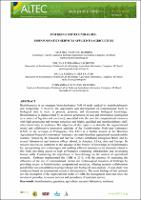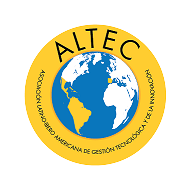Emerging biotechnologies: bioinformatics services applied to agriculture

View/
Author
Bambini, Martha Delphino
Giachetto, Poliana Fernanda
Kuser Falcão, Paula Regina
Stringassi Oliveira, Fernanda
Metadata
Show full item recordAbstract
Bioinformatics is an emergent
biotechnological field of study marked by interdisciplinarity
and complexity. It involves the application and development of computational tools to
biological data in order to process, generate, and disseminate biological knowledge.
Bioinformatics is characterized by an intense generation of data and information (configured
as a context of big data and e-science), associated with the need for computational resources
with high processing and storage capacities and highly qualified and interdisciplinary staff,
often found only in academia. The objective of this paper is to describe the organizational
model and collaborative innovation activities of the Bioinformatics Multi-user Laboratory
(LMB, in the acronym in Portuguese). The LMB is a facility located at the Brazilian
Agricultural Research Corporation (Embrapa), the main Brazilian agricultural research public
institute, formed by 46 Research and Service Centers distributed throughout Brazil and by
several laboratories and business offices abroad, in America, Africa, Asia and Europe. Its
mission involves to contribute to the advance of the frontier of knowledge in bioinformatics
by: incorporating new technologies and enabling efficient solutions to the demands related to
this field; providing access to high performance computing infrastructure and developing
human skills. Considering the importance of biotechnology in the context of agricultural
research, Embrapa implemented the LMB in 2011, with the purpose of increasing the
efficiency of the use of computational, human and technological resources of Embrapa by
providing access to bioinformatics computational resources, offering research collaboration
possibilities and consultation on project design and biologi
cal data analysis. A case-study was
conducted based on documentary research and interviews. The main findings of this research
are: the description of the organizational model of LMB, the management team and roles;
the
services it provides; its access policies and procedures of customer service.

